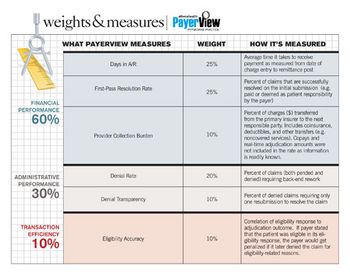
Unfortunately, physicians are not immune to the growing threat of identity theft and data breaches. Check out our guide to keeping your personal information secure.

Unfortunately, physicians are not immune to the growing threat of identity theft and data breaches. Check out our guide to keeping your personal information secure.

In this podcast, Justin Barnes, of the EHR Association and Greenway Medical Technologies, explains CMS’ final rule for meaningful use criteria for EHR incentives.

So CMS listened to your comments and concerns and relaxed the EHR meaningful use requirements. But are some choice and a little flexibility enough to open the flood gates for implementation? Maybe not entirely, but it may encourage some procrastinators to get there more quickly.

Are networking sites like Facebook and Twitter privacy problems in need of a solution, opportunities to build community around your practice, or both? We help you navigate this brave new world of Web networking.

CMS has relaxed the requirements and given providers some choice in how they achieve meaningful use of EHRs. The highly-anticipated final rule released today, which outlining the criteria for receiving federal incentive funding, includes several changes from the initial proposal.

A new study finds that e-mailing chronic disease patients could improve outcomes. But only about a third of docs e-mail patients, a trend that could shift as more practices adopt secure messaging and patient portals.

Medicare’s shared savings approach grew out of its Physician Group Practice (PGP) demonstration. The results of the pilot for first three years were fairly impressive.

This week, the ONC will make applications available for organizations that want to become EHR certifying bodies.

Electronic communication is omnipresent. Not only is it instantaneous, but in many ways it is becoming the standard of care. No longer does a practice need to create mountains of paperwork.

How much time should you spend with your patients? This is an important question, but difficult to answer.

Meeting meaningful-use requirements for EHRs will demand interoperability between data systems. Do you have a strategy for connecting online with pharmacies, labs, other physicians, and patients? Here’s our primer for achieving connectivity and meaningful use.

Are you taking a close look at the fine print before signing your equipment leasing paperwork? You should be. We show you why and what pitfalls to avoid.

Our fifth edition of PayerView uses real claims data to examine and rank payers based on financial and administrative performance, as well as efficiency. Here’s to friendly competition that helps docs get paid.

We know EHRs can improve practice efficiency, but can they improve patient care? The evidence is suggesting they can. From disease management tools to automated reminders, EHRs are offering welcome improvements in patient outcomes.

Voice recognition software has gotten more sophisticated and easier to use. Still, is it good enough yet to be worth the time and money it will cost you to use it?

Plastic surgeon Eugene J. Strasser runs into trouble when an angry patient insists he bill Medicare for an elective procedure and he rightly refuses.

Here's a primer to assist your medical practice maintain its patient records and avoid any legal troubles.

When a drug that you prescribe often is recalled, you’re going to get swamped with calls and questions. Better to have a recall response plan in place before trouble strikes.

Coding is hard. It’s tedious. Yet it is how you get paid for the services you perform. So we asked the experts where things go wrong most of the time - and how to fix them.

Electronic prescribing is well on its way to becoming mainstream, and new DEA regulations allowing electronic prescriptions of controlled substances should accelerate that movement.

EHR adoption is still very low in the United States, especially among smaller practices. Therefore, to facilitate the adoption and the achievement of meaningful use of these EHRs among small practices, the Office of National Coordination for Health Information Technology (ONC) has now designated some 60 Regional Extension Centers (REC).

The road to electronic health records is filled with good intentions. However, every EHR vendor claims they have a certified product. Here are some steps that you can take to protect your EHR investment.

Thinking of leaving your practice? Plan ahead to avoid problems with malpractice insurance, non-compete clauses, and other issues.

Many practices use midlevel providers to care for patients with routine complaints. But it’s important to understand their legal scope of practice and necessary level of supervision.

Do you know what’s in your partnership contract? Poorly designed or nonexistent contracts can spell disaster for you and your practice. Here’s how to make sure you’re protected.